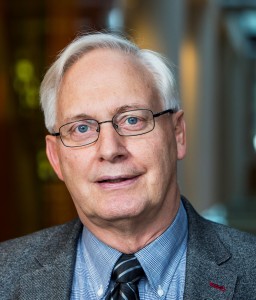NERA in Oslo last March was interesting. I participated in the NERA panel on the nature of the hierarchy or relationship between "pedagogy" on the one hand and "educational science" on the other. It is clear that the latter is taking over, even though my stance is that that there are elements within the pedagogical discourse that are not covered by what we would normally place under the heading of educational science. Issues such as what values we should cherish within education and how the school might best prepare us for the future. This is based on an ethical or a value judgement, rather than conclusions we can derive from research, at least not from empirical research.
I was honored to present the keynote at the teacher union general conference held every four years, where I focused on harnessing teacher professionalism, on the importance of placing the focus more on professional development, and on the importance of giving teachers voice in the educational discourse. The ATA run Ulead conference in Alberta in April was interesting and well attended by Icelandic participants. I found the TwinPeaks pre-conference of particular interest, where the focus was on the "public" in public education. The merging of history, reminiscences and later life of many graduates from Hólar, the ancient and modern seat of learning in Iceland was inspiring in the seminar where Hólar celebrated the 100 year of Icelandic administrative independence.
Guðrún Ragnarsdóttir defended her thesis, in a lively discussion with the opponents, Elisabet Nihlfors, from Uppsala University and Monica Johansson from the University of Gothenburgh. We were happy that Lisbeth Lundahl, from the University of Umeå, who had been on the committee, lead by Ingólfur, found time to attend. I feel the notion Guðrún defends is of particular interest, i.e., that a school (upper secondary in this study) is a curious and a very complex blend of an institution and an organization. She showed how this curious blend was clearly reflected in the discourse of school leaders at the upper secondary level.
I found it challenging to look back and figure out what characterized the educational discourse in Iceland in the 60's and 70's at the seminar on the department of School Research at the ministry of education that was established in the late 1960's. Presenting the keynote on School and education, school policy or educational policy at the Society for Educational Research conference turned out to be a rather difficult task. One of my main problems, unexpectedly, was to determine if one needs to define what was good education if one wants to define a good school. I am now looking forward to the JustEd conference in Helsinki next week, where I am presenting both with Guðrún and Pascale.

